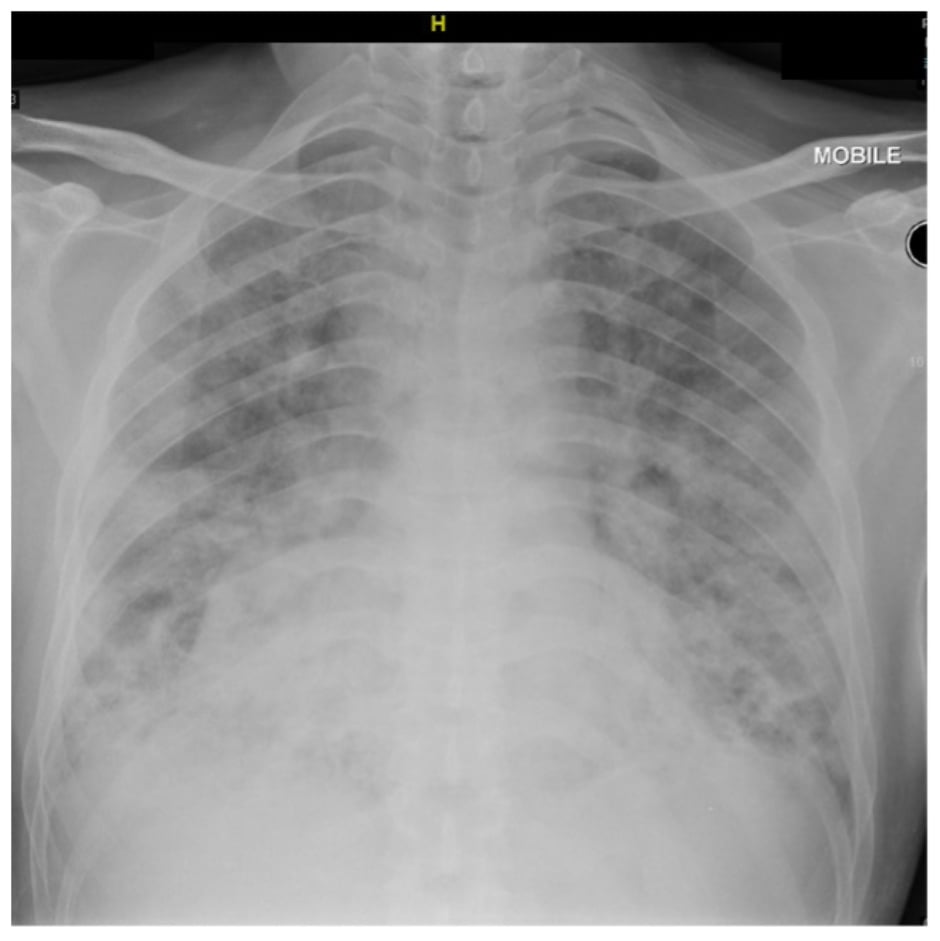Abstract
Thymoma is often associated with many other autoimmune disorders and clinical conditions. Good syndrome is one of the rare associations between thymoma and immune deficiency that occurs in both males and females in the 4th or 5th decade of life. Patients can present with various invasive encapsulated organisms, and opportunistic viral and fungal infections, due to immune defects. The authors report a case of a 57-year-old male with underlying thymoma and lichen planus which were diagnosed 3 years apart.
 |
| Plain chest radiograph upon admission showing consolidation in both lung fields. |
He presented with atypical pneumonia during the COVID-19 pandemic, and was treated for multiple atypical infections, including cytomegalovirus and Pneumocystis carinii pneumonia. His immunological investigation panel revealed low IgA and IgG levels with normal IgM levels, and an overall deficient total B cell count. His CD4:CD8 ratio was reversed at 0.28. The patient recovered well after Ig replacement therapy once the Good syndrome diagnosis was made. The authors highlight the importance of a high index of clinical suspicion in dealing with this uncommon concomitant occurrence of Good syndrome during the COVID-19 pandemic for a swift and timely diagnosis and management. Immunological investigation panels, including T cell subsets, B cells, and quantitative Ig levels, should be considered routinely in patients with underlying thymoma presenting with opportunistic infections.
Key Points
1. Even during a pandemic, physicians should remain vigilant for rare immunodeficiencies such as Good syndrome, in patients experiencing refractory severe infections.
2. Ig levels should be assessed in patients with thymoma who present with unresolved infections.
3. Intravenous Ig replacement therapy is effective in treating Good syndrome.

No comments:
Post a Comment